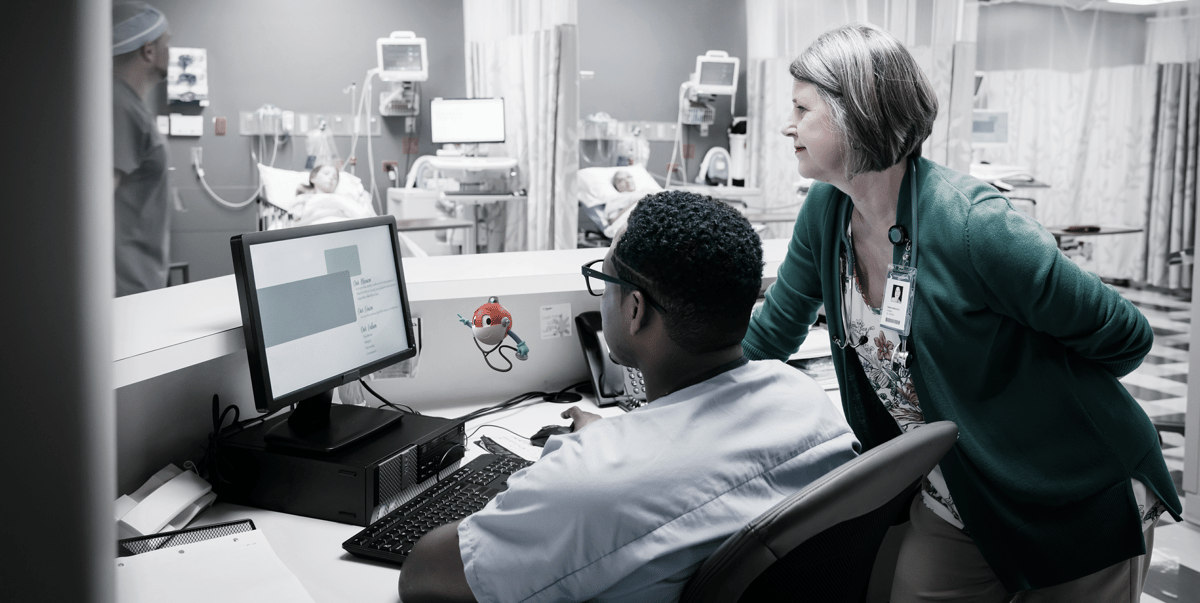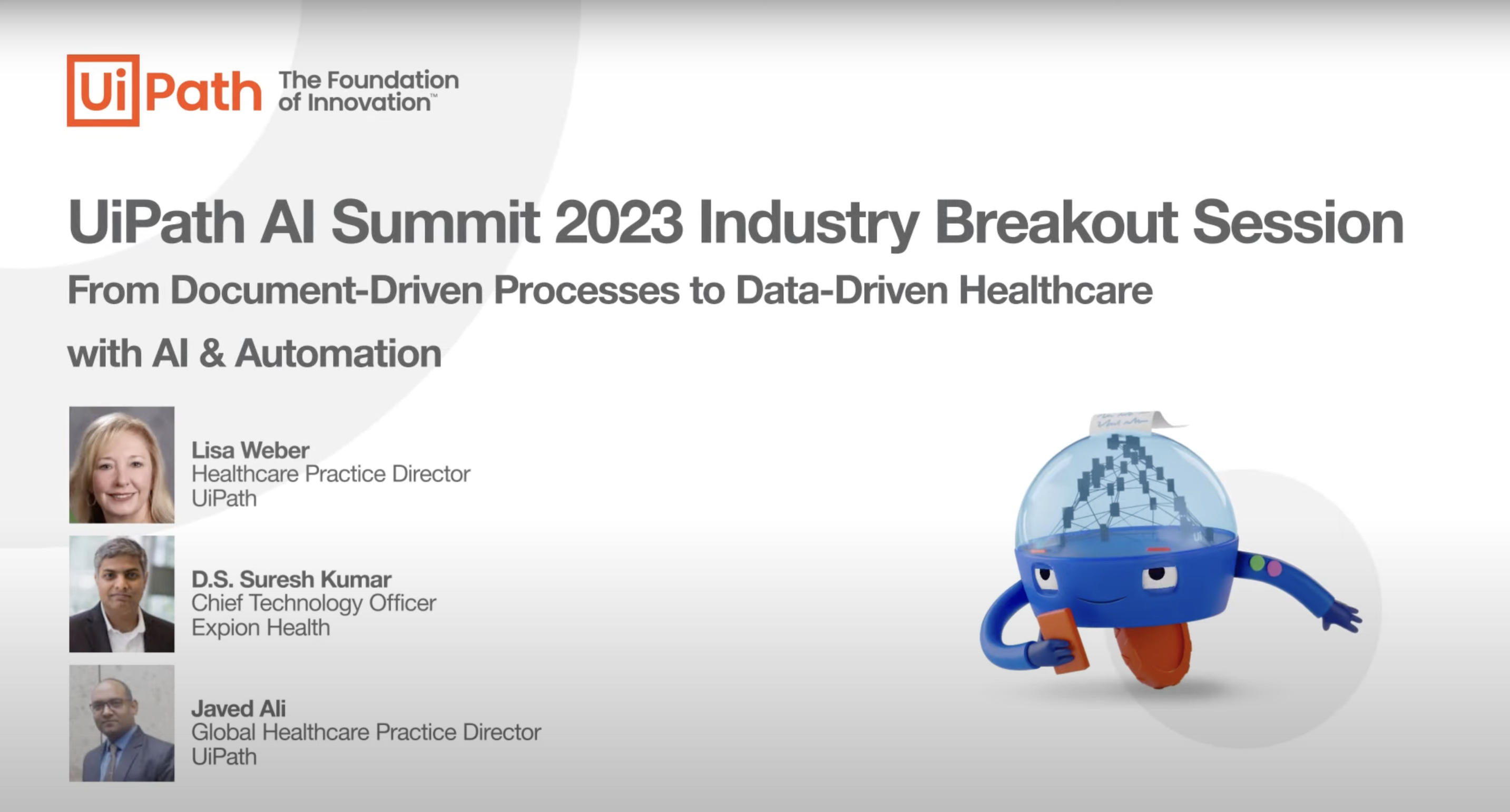Transforming healthcare document processing with AI
Share at:

The UiPath AI Summit 2023 unveiled some critical insights into the potential role of artificial intelligence (AI) in the healthcare industry. The session hosted industry experts Javed Ali, Global Healthcare Practice Director at UiPath, and D.S. Suresh Kumar, Chief Technology Officer at Expion Health. They highlighted the impactful role of AI-powered automation, specifically focusing on UiPath Document Understanding in healthcare.
A prominent issue discussed during the summit was excessive paperwork in the healthcare system. A typical clinician spends nearly two hours each day managing paperwork. The speakers emphasized the pain points on the payer side of the business, such as member onboarding, claim intakes, and reviews, with documents being key to these processes. Document understanding is essentially the intersection of document processing and AI. Data from documents is extracted and interpreted for various applications. UiPath provides pre-trained models to assist in this process, simplifying complex tasks and streamlining operations.
Kumar shared practical examples of how Expion Health has used UiPath Document Understanding. By leveraging Document Understanding to analyze remittance advice documents and process manual claims more efficiently, they significantly increased their processing capacity from 75 claims per day per person to around 400–500. Their quick and efficient deployment of this technology was possible due to standardized HIPAA formats and UiPath integrative capabilities.
Additionally, within merely three to four months, the claim processing threshold increased from approximately 70 to over 400 per day. The increase was attributed to the automation of previously manual tasks. The freed-up resources were then employed for other value-added services, increasing efficiency and productivity across the board.
Expion Health is also exploring using Document Understanding to automate and streamline the processing of provider bills. They aim to leverage UiPath to process and understand a variety of provider bill formats, which would reduce manual labor and boost efficiency.
In line with their automation strategy, they plan to implement UiPath Communications Mining. It will help analyze structured and unstructured data from past interactions and negotiations with providers, equipping negotiators with valuable insights for future discussions.
These AI-powered technologies are not just beneficial to payers; they're also providing value on the provider side. They assist in tasks like inbox management, identifying actionable items, and redirecting non-urgent or administrative queries. As a result, physicians and nurses are able to focus more on patient care and less on administrative tasks.
The key takeaways from the healthcare portion of the AI Summit are twofold. First, technology should be employed to improve consistency, speed, and efficiency, particularly in areas involving manual processes. And second, ensuring that operational leaders feel that they are interacting with—rather than competing against—the technology is fundamental to the success of these initiatives.
In conclusion, Expion Health’s journey showcases how harnessing AI-powered automation can greatly enhance efficiency, boost productivity, and free up valuable human resources for more strategic tasks. Their real-world example paints a vivid picture of the bright future awaiting healthcare automation. As AI continues to evolve, we anticipate a significant transformation in the healthcare sector.


Product Marketing Manager, UiPath
Get articles from automation experts in your inbox
SubscribeGet articles from automation experts in your inbox
Sign up today and we'll email you the newest articles every week.
Thank you for subscribing!
Thank you for subscribing! Each week, we'll send the best automation blog posts straight to your inbox.



